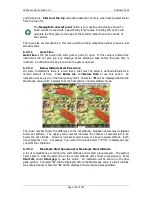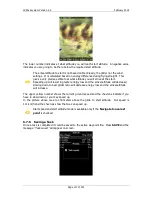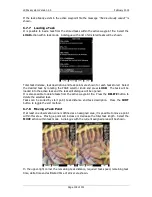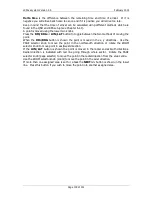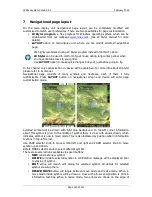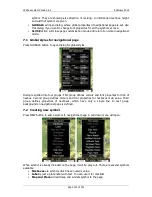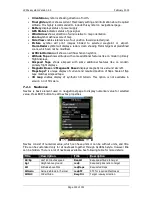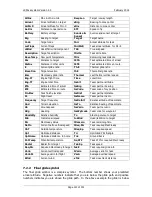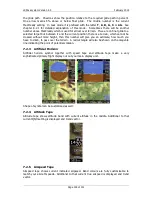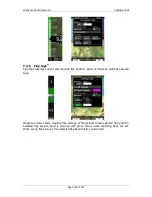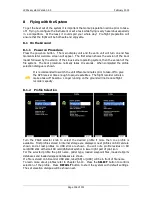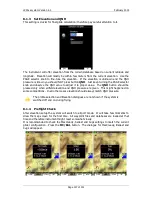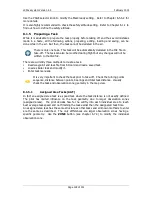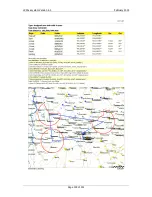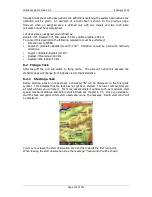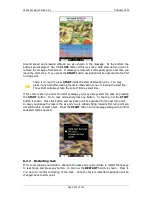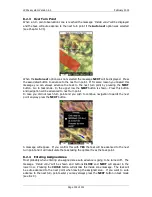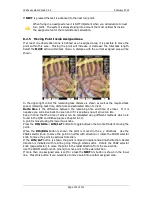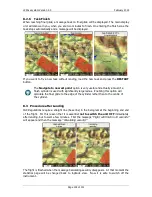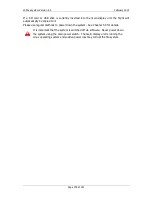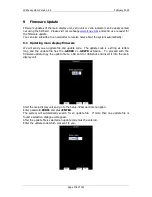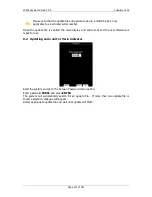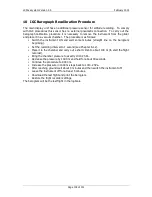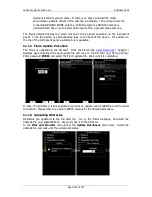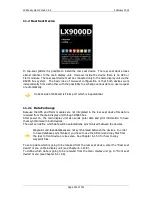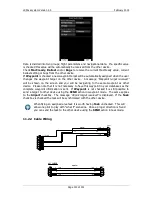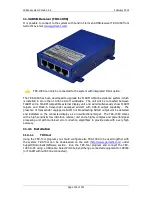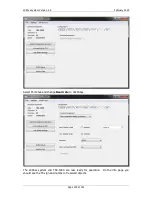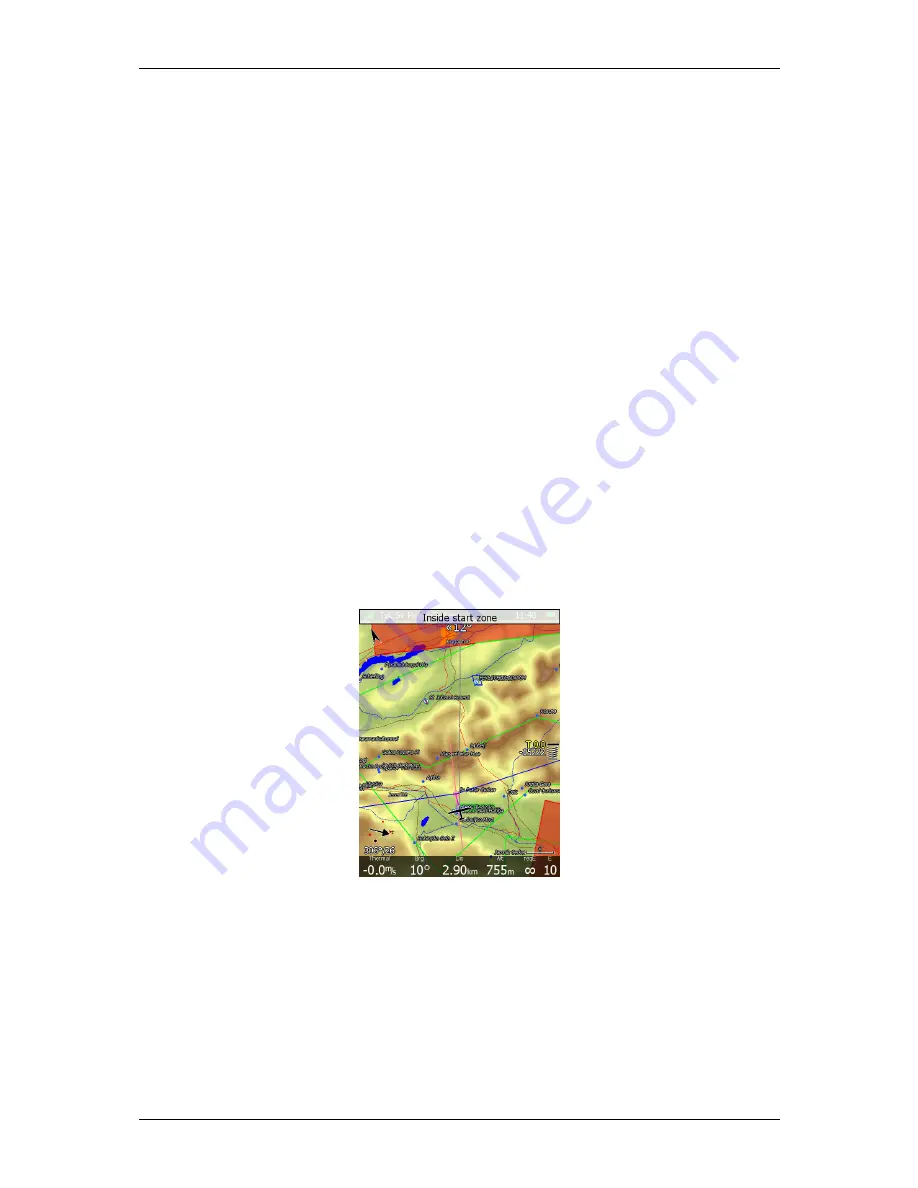
LX90xx system Version 4.0
February 2014
Page 130 of 151
Usually a task sheet with observation zone definitions matching the system observation zone
definition will be given. An example of a task sheet is shown on the previous page.
However when an assigned area is defined only with two radials and two radii some
calculation must be accomplished.
Let us assume an assigned area defined as:
Radial1=30°, Radial2=70°, Min.radius=50 km and Max.radius=200 km
To convert this description the following calculation must be performed:
•
Direction set to FIXED.
•
Angle12= (Radial1)/2+180°=230°. Attention should be paid with northerly
directions.
•
Angle1= (Radial2- Radial1)/2=20°.
•
Radius1=Max.radius=200 km.
•
Radius2=Min.radius=50 km.
8.2
Flying a Task
After take-off the unit will switch to flying mode. The pilot will notice this because the
statistics page will change from logbook view to flight statistics.
8.2.1
Starting a Task
Before starting a task (in task mode) a character “
S
” will be displayed on the final glide
symbol. This indicates that the task has not yet been started. The lower number tells you
at what altitude you will start. For more advanced start options such as maximum start
speed, maximum altitude and before start altitude see chapter 6.7.5. Once you decide to
start the task and glider enters start observation zone, the message
“Inside start zone”
will
be displayed.
You may now leave the start observation zone and fly towards the first turn point.
When leaving the start observation zone the message
“Task started”
will be shown.
Summary of Contents for LX90xx
Page 2: ......
Page 129: ...LX90xx system Version 4 0 February 2014 Page 129 of 151 ...

